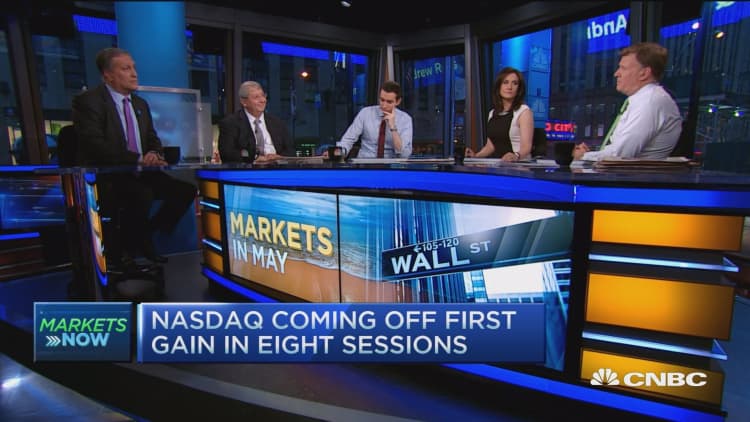
Investors waiting for the big second-quarter uptick in economic activity seen in recent years are likely to be disappointed, Federated Chief Equity Strategist Phil Orlando said Tuesday.
GDP growth of roughly 4 percent offset weak economic gains in each of the past two years, but those rebounds followed "brutal" winters during which business activity was muted, Orlando said.
The first part of the trend held this year: The Commerce Department's first of three readings last week showed meager 0.5 percent growth in the first quarter.
"One of the things that concerned us is that the market was sort of ignoring that," Orlando told CNBC's "Squawk Box."
"We had a pretty easy winter here, so our expectation is that we're looking at 2 percent give or take in the second quarter, not 4 or 5 percent. So I think the market is getting ahead of itself," he said.
That sets up the United States for full-year GDP growth of roughly 1.7 percent, he added.
Strong housing data in the first quarter suggest that some activity was actually pulled into the first quarter by mild winter weather, Orlando told CNBC.
In this low-growth, low-rate environment, Federated is neutral on stocks and is holding more cash and bonds than usual, he said.
"We're still in the correction camp. We could absolutely see stocks pull back 5 to 8 percent over the next couple of months," he said.
The Federal Reserve is keeping rates low to inoculate the country against global deflationary pressures, said Steven Ricchiuto, chief U.S. economist at Mizuho Securities. The failure of European and Japanese central bank intervention to cap euro and yen appreciation shows that "central bank monetary policies are bankrupt at this point," he told "Squawk Box."
At this point, purchasing power parity is pulling up foreign currencies and dragging down the dollar, he said.
"That just gives us an environment where we get a little bit of a natural benefit from that, but we don't have strong enough global growth to correct everything," he said. "And we're not going to be able to be the leader on the growth side either because there's excess supply."





